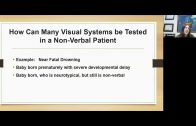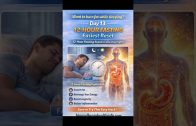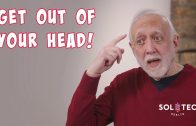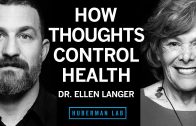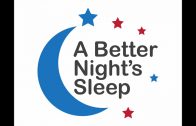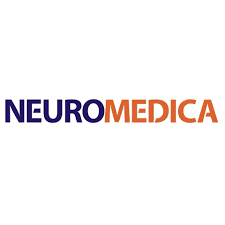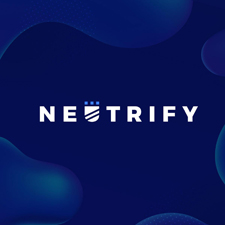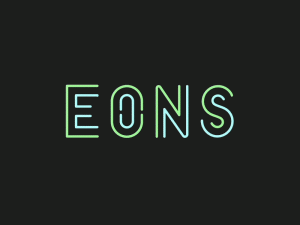[WEBINAR] Mind-Eye Testing for Patients Who Cannot Speak
This webinar is designed for those who are, or care for, or work with individuals who cannot speak. This informative session will introduce our innovative approach to assessing and supporting patients who are non-speaking or non-verbal, focusing on how our unique testing methods can help uncover hidden sensory processing challenges and improve their quality of life. Whether you’re a caregiver, educator, or healthcare professional, this webinar offers valuable insights into how the Mind-Eye Institute bridges the gap between brain function and vision care.
We encourage you all to attend this informational session where we will dive deeper into:
Background Information:
✅ Eyesight is only one of many visual systems
✅ What is the difference between a non-speaking and non-verbal patient?
Testing Information:
✅ How can the many visual systems be tested in a non-verbal patient, such as a survivor of a near-fatal drowning?
✅ What is different when assessing a non-speaking patient, who can use gestures and often communication boards?
✅ How can the use of a communication device be made easier by building visual systems?
✅ How is testing a baby different from a non-verbal patient?
Rehabilitation Information:
✅ Once visual skill weaknesses are identified, how does the Mind-Eye team help develop them?
Presentation
00:09 Introduction
02:29 Difference between non-speaking and non-verbal
04:07 How can many visual systems be tested in a non-verbal patient?
14:39 How can many visual systems be tested in a non-speaking patient?
19:20 Illustrating what is going on inside and outside the mind
23:56 How can Mind-Eye help develop visual skills?
26:43 Motormorphosis
Q&A
28:11 What is your experience with non-speaking people on the spectrum and specifically in this case, with adults?
29:37 What is the efficacy of our program with patients who have CVI (cortical visual impairment) or who are looking to get diagnosed with CVI and are not to a point where they are able to communicate?
33:11 What prism lenses work best for ASD children? And is visual stimming due to the dysfunction of the eye?
36:12 Does visual stimming have to anything to do with central fixation neglect?
38:32 Could certain deficits in visual functions have an effect on postural aspects – specifically maybe in patients who are on the spectrum or have cerebral palsy?
39:50 How do you test how this affects those postural aspects?
42:26 What is the benefit of an integration with visual and auditory processing and how that helps with speech an aphasia?
44:52 What is your experience working with patients who are in a coma?
47:21 Can you go into a little more detail on working with people who work with tools to communicate, i.e. letter boards?
49:46 You briefly mentioned prisms to wake up the brain, would that be true for briefly wearing colored/red lenses and are there concerns related to specialized lenses and seizures or first time seizures?
51:47 Using prism lenses at night while they sleep to help regulate blood sugars from dropping with TBI – do you have any opinions on that?
54:39 Conclusion
Resources:
Motormorphosis: https://i-asc.org/
Roman CVI Scoring: https://pcvis.vision/educators-and-therapists/
▶︎ If you or someone you know has experienced a vision problem, brain injury or feel like “something is different” then take our free online “Brain Quiz” or speak with one of our New Patient Advocates and come in for a Mind-Eye exam today by contacting our office at 847-984-3156 or visiting us at https://mindeye.com
The Mind-Eye Institute is an optometry practice with an emphasis on neuro-optometric rehabilitation that provides world-class care by measuring the eye as well as how the brain processes its visual inputs.
Through groundbreaking research and innovative treatments, Dr. Zelinsky and her team have been creating life-changing experiences for nearly 30 years – working with Post-Concussive Syndrome, Traumatic Brain Injury, Autism or Developmental Issues, Unique Learning Issues and Difficulties with Attention (ADD, ADHD, CAPD), PTSD and more. For more information, please call 847-984-3156, or visit http://mindeye.com.
▶︎ SOCIAL MEDIA LINKS
https://www.facebook.com/mindeyeinstitute
Tweets by mindeyeconnect
https://www.yelp.com/biz/mind-eye-institute-northbrook
© 2020 Mind-Eye Institute, LLC, All Rights Reserved
